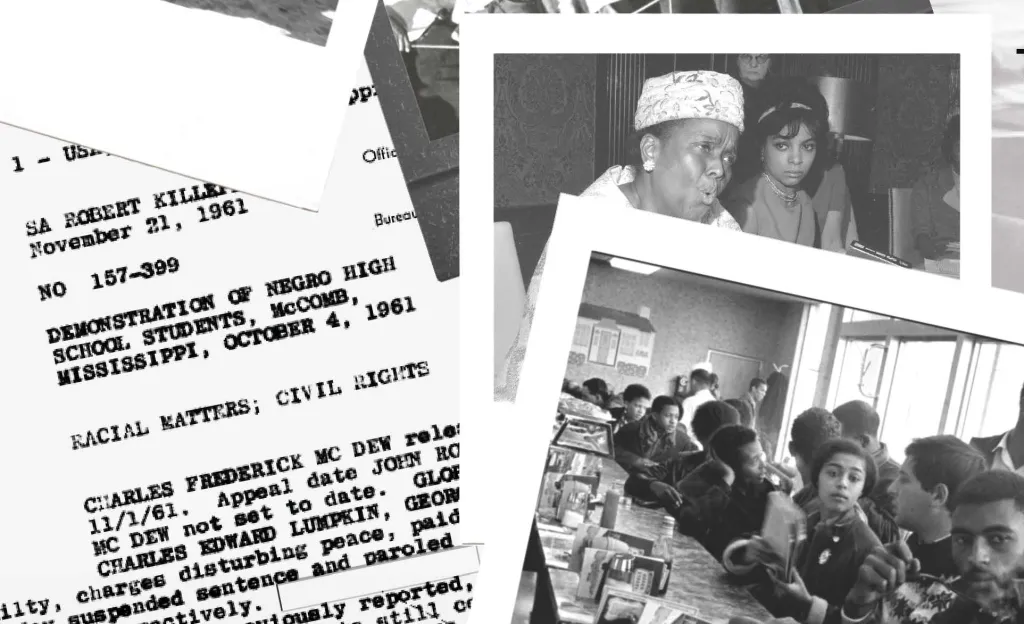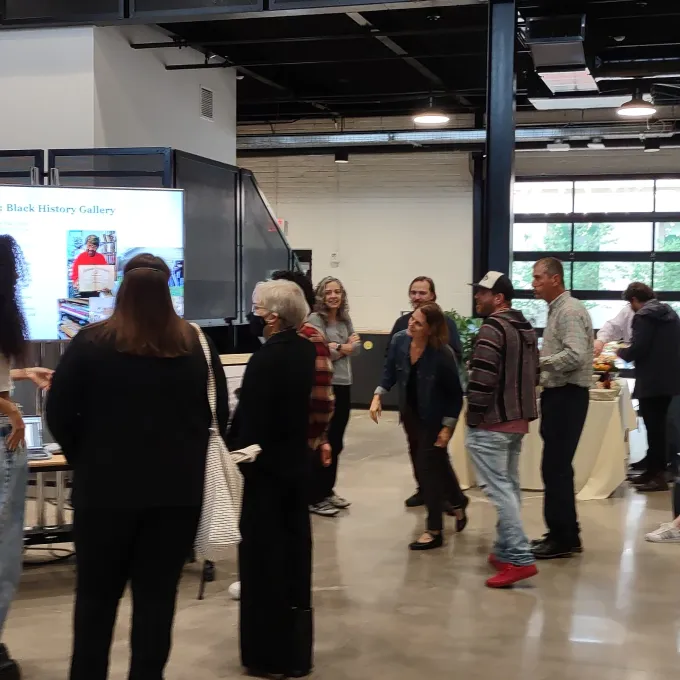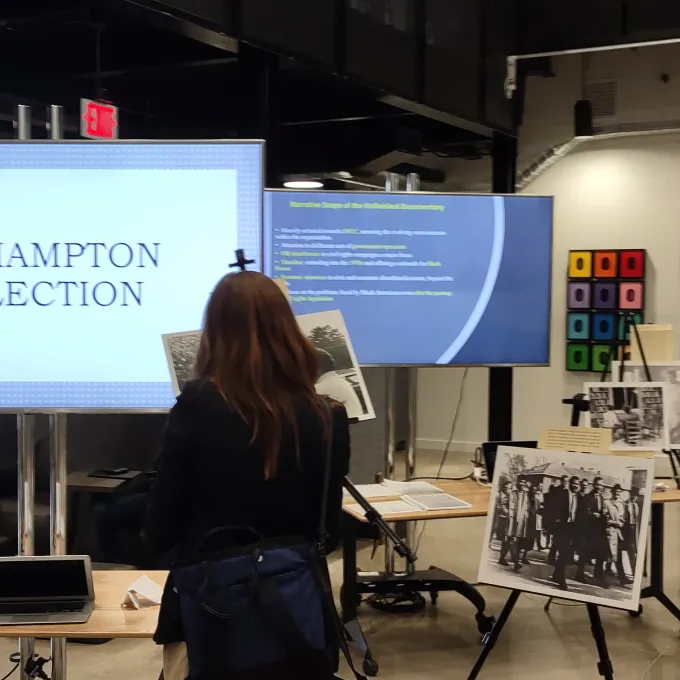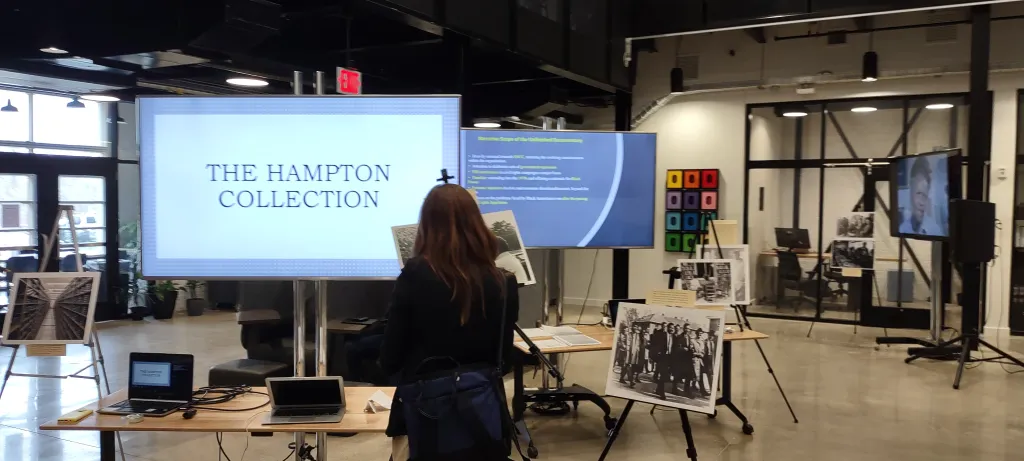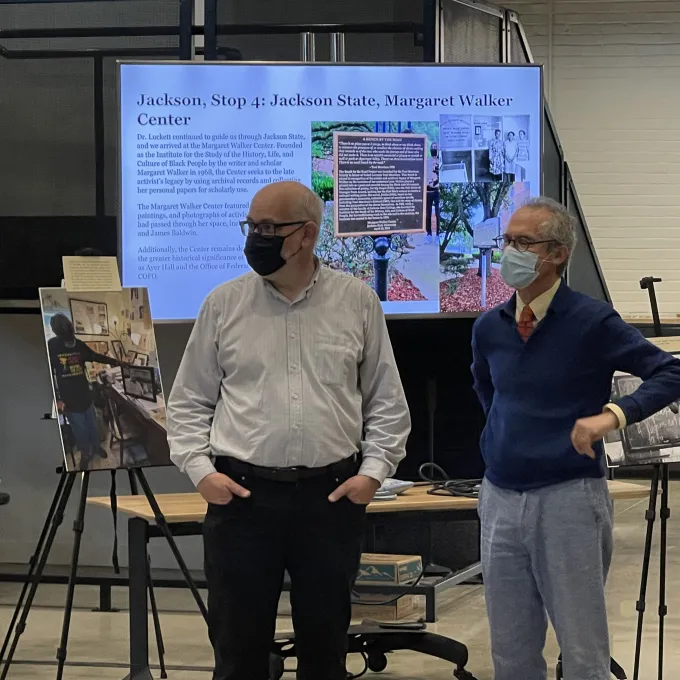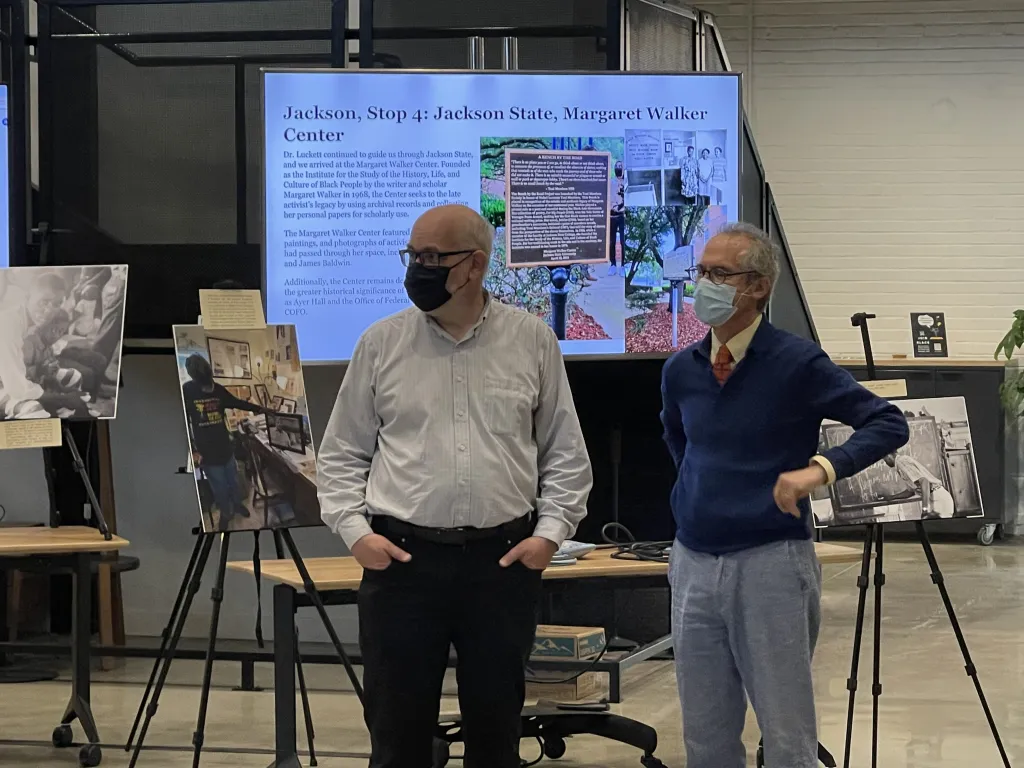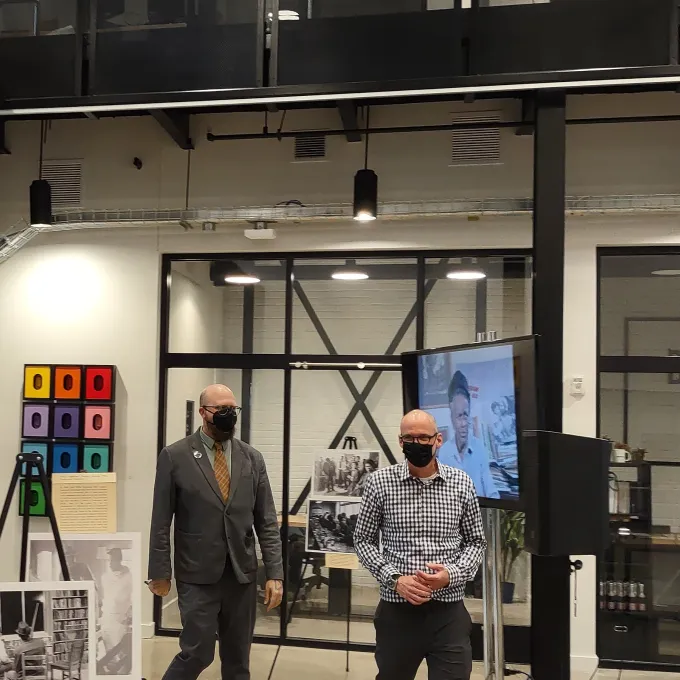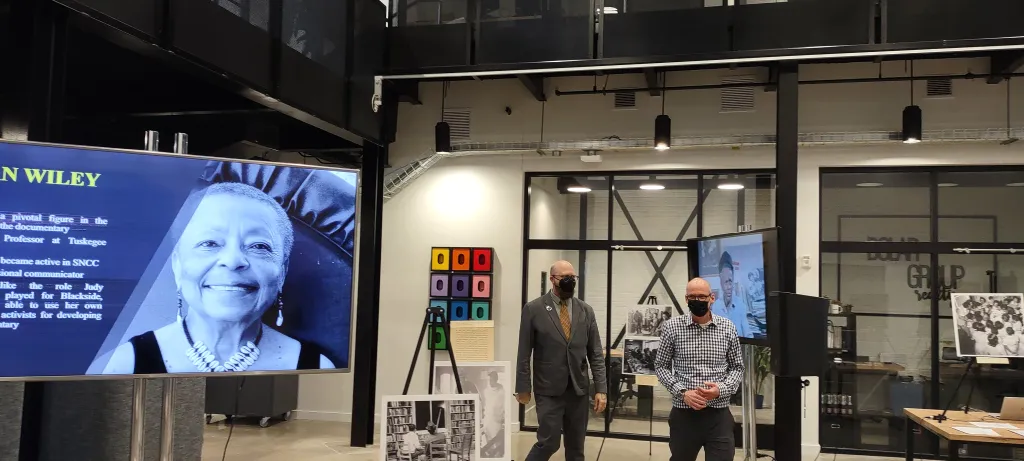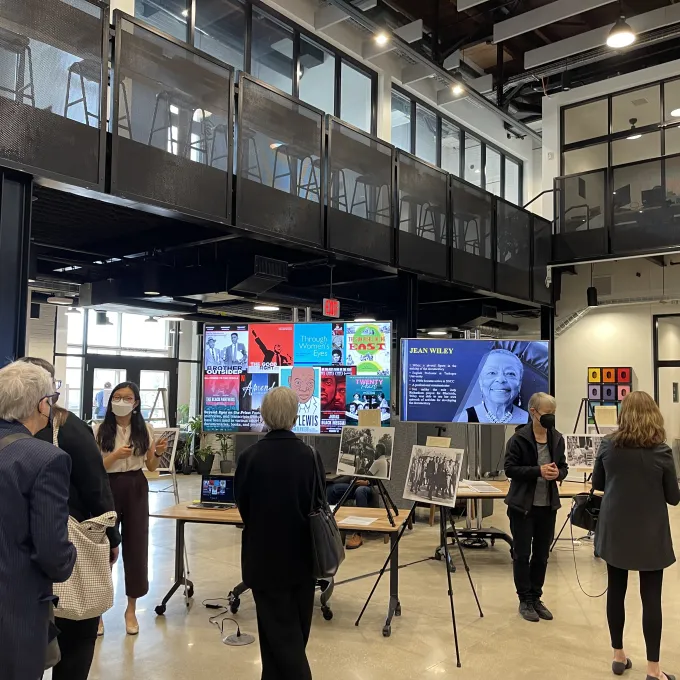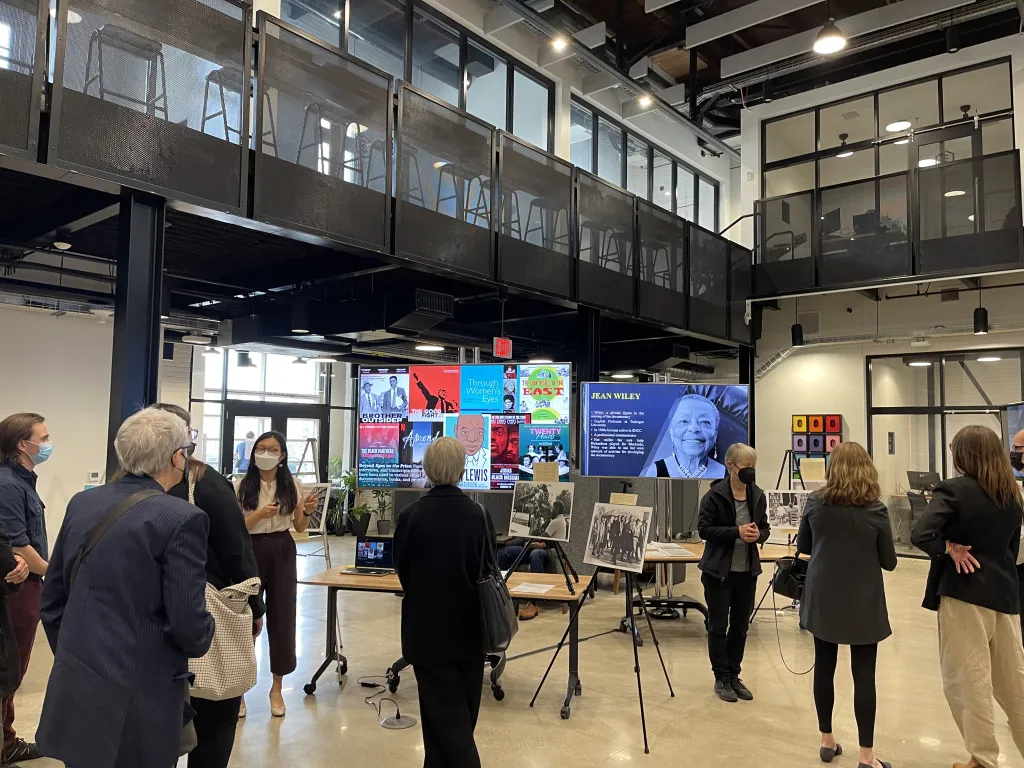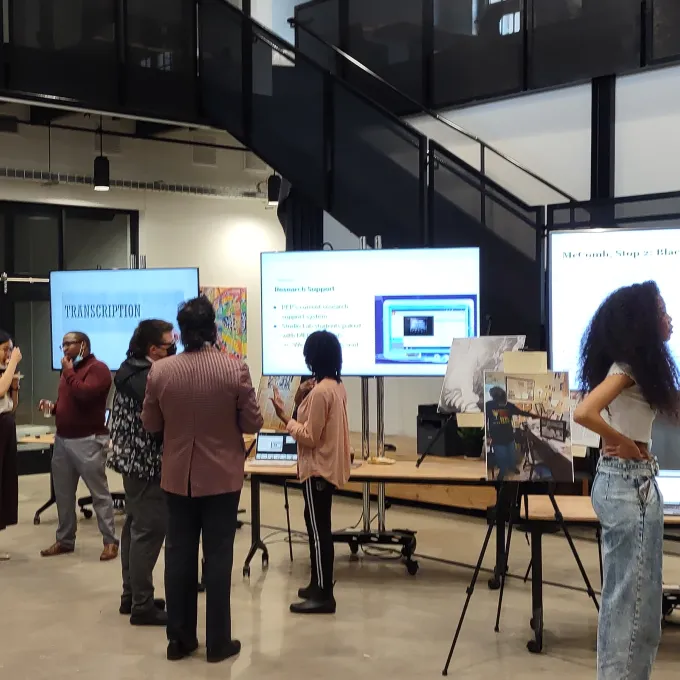-
No open competitions at this time
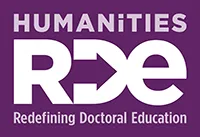
Our most ambitious plan is to pilot three vertically organized studiolab communities for humanities research and collaboration. The humanities studiolab draws inspiration from both the studio and laboratory as pedagogical spaces. We are piloting these communities, one each year for the final three years of the grant, in what was formerly a high school in University City, very near to our Danforth Campus. The Lewis Collaborative, as it is now named, was purchased by Washington University some time ago and was remodeled in past years to serve as graduate housing and more recently as spillover studio space for graduate students in the Sam Fox School of Design and Visual Arts. The entire complex has been renovated provide housing for graduate students in the humanities and the arts, as well as housing for visiting humanities faculty and artists/scholars-in-residence, studio space, and a multipurpose exhibition/performance venue. The center consists of approximately 90,000 usable square feet, 20,000 square feet of which has been allotted for nonresidential use.
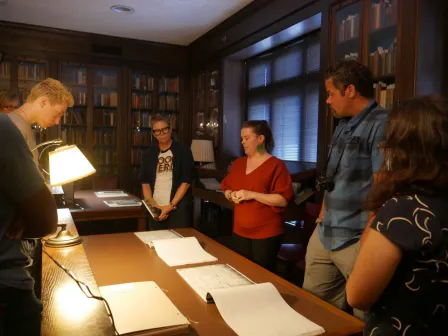
The Memory for the Future Studiolab took a research trip to Tulsa, Oklahoma, as detailed in “Memory studies beyond the classroom,” in Arts & Sciences’ blog, The Ampersand.
The renovation of the Lewis Collaborative gives us an extraordinary opportunity to think about “space” and “community” as constitutive parts of the initiatives we hope will transform graduate training in the humanities at Washington University. Each community or studiolab will be proposed and organized by at least two Washington University faculty and will include the following participants, all of whom will work together in the newly renovated Lewis Collaborative:
- A humanities scholar-in-residence (duration to be determined and budgeted by the organizers).
- A two-year pre-doc/post-doc fellow, recruited from within Washington University, who will be appointed during his or her final year of graduate school to assist faculty in developing and recruiting for the studiolab during the year prior to its establishment and then will serve in a post-doctoral capacity, as the studiolab coordinator or project manager.
- An interdisciplinary cohort of graduate students, who will receive credit for participation, as if they are enrolled in a two-semester seminar sequence. We intend to introduce the studiolabs to prospective students during Washington University’s recruitment weekend, as well as during first-year orientation.
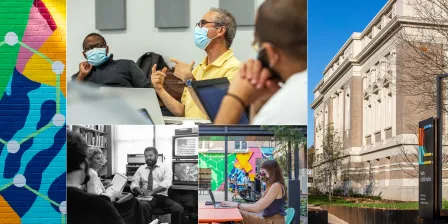
Read about the first studiolab, Freedom | Information | Acts (Joe Loewenstein & David Cunningham), in “A new home for humanists,” in Washington magazine.
The members of this community will focus on a theme or problem for a sustained period of one year. As they do so, they will incorporate and develop the capacities, beyond specific disciplinary skills, that we consider essential to success within and beyond academia: competency with digital and other media; collaboration; project management; communication with many audiences, both within and beyond the university; and oral presentation. The organizing faculty will be responsible for developing the two-semester studiolab syllabus, establishing clear learning goals, and outlining specific outcomes. The pre/post doctoral fellow will assist with the management of the project during the development/recruitment year and during the year the studiolab is up and running. The concluding project of each studiolab will be a public presentation of findings in whatever forms are appropriate, including performances, exhibitions, documentary films, and publications in popular and academic venues. We believe that these small, close-knit academic communities will move us out of our individual research carrels and our disciplinary silos. More importantly, they will position us to undertake innovative, cutting-edge work in the humanities and to train post-docs and PhD students who are exceptionally well-prepared for rewarding and important careers within and beyond the academy.
The selection will be made by a subcommittee consisting of four members of the Advisory Committee, a representative from the Office of Graduate Studies in Arts & Sciences, and two external members. Our intent is to recruit external members from humanities labs and “collaboratories” at other institutions.

The Memory for the Future (M4F) StudioLab (Geoff Ward, Anika Walke) combined the study of interlinked histories and legacies of colonialism, slavery and genocide with collaborative development of reparative public humanities projects in St. Louis.
The Freedom | Information | Acts StudioLab was a full-year interdisciplinary course bridging cultural studies, sociological inquiry, and digital humanities. Students worked together to apply digital tools to archival materials on the Civil Rights Movement with the aim of enhancing and expanding public access to digital archives.
In developing our studiolab template, we have considered a range of models elsewhere (University of Michigan’s Humanities Collaboratory, American University’s Humanities Lab, the University of Chicago’s Chicago Design Lab, and the Nexus Digital Research Co-op, among others). We will require each studiolab to draw from the expertise generated by these established models by inviting at least one consultant from these institutions or from others for an advisory visit in the year preceding the lab and for a final evaluation visit at the close of the lab. (The PI and Advisory Committee will also meet with each consultant during her/his visit.) In that way, we hope to learn from the experiences of others and to contribute to the development nationally and internationally of innovative best practices in graduate pedagogy beyond the traditional three-hour seminar. We will also encourage faculty organizers to envision their humanities-scholar-in-residence as someone who not only has thematic or topical expertise, but experience with scholarly collaboration and innovation, as well as with public and community engagement.
Grants awarded
Current competition
No open competitions
Past competitions
2022-23 CALL FOR PROPOSALS & APPLICATION
